Speaker Bios
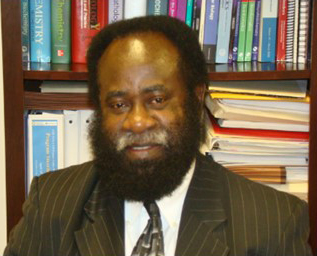
Samuel Evans Adunyah, Ph.D. – Tenured Professor of Biochemistry and Cancer Biology and Distinguished Chairman of Biochemistry, Cancer Biology, Neuroscience and Pharmacology, Meharry Medical College
Samuel Evans Adunyah is a Tenured Professor of Biochemistry and Cancer Biology and Distinguished Chairman of Biochemistry, Cancer Biology, Neuroscience and Pharmacology at Meharry Medical College, Nashville. He received his Ph.D. in biochemistry in 1987 from the University of Louisville, KY. Since 2001, he has served as a Principal Investigator (PI) for the Meharry-Vanderbilt-Tennessee State University Cancer Partnership NCI U54 grant 5U54CA163069-10. Additionally, he is the Contact PI for Meharry’s RCMI Health Disparities Research Center and three COVID-19 supplement awards to U54 Grant U54MD000786 and also a PI of an American Cancer Society grant. He is a member of the American Association for Cancer Research, American Society of Hematology, and American Society for Biochemistry and Molecular Biology. His research focuses on cytokine receptor signaling and cytokine-mediated regulation of cancer cell growth, differentiation, and apoptosis. Additionally, he is involved in collaborative research on colon cancer, ovarian cancer, prostate cancer, and cancer health disparities. He is also an educator and plays key roles in training African Americans in biomedical sciences. Dr. Adunyah has graduated 13 Ph.D. trainees, including 10 African Americans from his laboratory, most of whom have become successful, including two hematologists/oncologists. He has served on 59 Ph.D. Thesis Research Advisory Committees and teaches cancer biology, cell signaling, cytokine, metabolism, and molecular genetics courses. He served as PI for his department’s National Heart, Lung, and Blood Institute (NHLBI) T32 training grant for 20 years. He has served on numerous NIH Study Sections and Special Emphasis Review Panels, including Cancer Molecular Pathobiology (CAMP) Study Section, Centers of Biomedical Research Excellence, NCI Diversity R21 and U01, National Institute of General Medical Sciences Institutional Development Award for Clinical and Translational Research and IMBRES, D43, NHLBI F31/F32/F35 Fellowship Review Panels, and Howard Hughes Medical Institute’s Medical Fellowship Program.
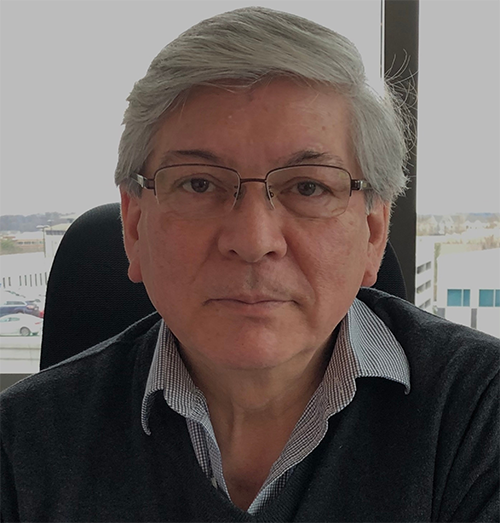
H. Nelson Aguila, D.V.M. – Deputy Director, CRCHD
H. Nelson Aguila is Deputy Director of NCI’s CRCHD. In this capacity, he plays a central role in coordinating the day-to-day functions of the Center and development of strategic planning, priority-setting and management of CRCHD’s disparities research, diversity training, and community education/outreach efforts. Previously, he served as Chief of CRCHD's Diversity Training Branch. Prior to coming to NIH, Dr. Aguila worked at the U.S. Food and Drug Administration (FDA) as a Reviewer Toxicologist at the Center for Veterinary Medicine. Earlier in his career, Dr. Aguila held senior research scientist positions in neuropathology at the University of Miami and later in cancer gene therapy at Aventis-Gencell. He earned his Doctor of Veterinary Medicine degree at Austral University in Chile and trained as a neurobiologist at The University of Texas Southwestern Medical Center, Dallas.

LeeAnn Bailey, M.B.B.S, Ph.D., M.S. – Chief, Integrated Networks Branch, CRCHD
LeeAnn Bailey has been Chief of the Integrated Networks Branch of NCI’s CRCHD since 2016. In this role, she manages, develops, and assesses strategies for enhancing the integration and dissemination of diversity training, women’s health, and sexual and gender minority efforts within and across NCI, as well as within the scientific community and underserved communities through NCI-supported networks. She also identifies and leverages opportunities to address unmet needs in cancer health disparities research. Prior to joining NCI, she was a healthcare consultant at Deloitte Consulting LLP. Dr. Bailey also has been a Principal Investigator researching tissue engineered products and cellular inflammatory responses at the National Institute of Standards and Technology as well as an adjunct professor at Morgan State University. She received her M.B.B.S (M.D. equivalent) from the University of Adelaide Medical School with an emphasis on aboriginal health and pediatric oncology. Dr. Bailey also has a Ph.D. in biochemistry and molecular genetics and an M.S. in biological and physical sciences from the University of Virginia School of Medicine.
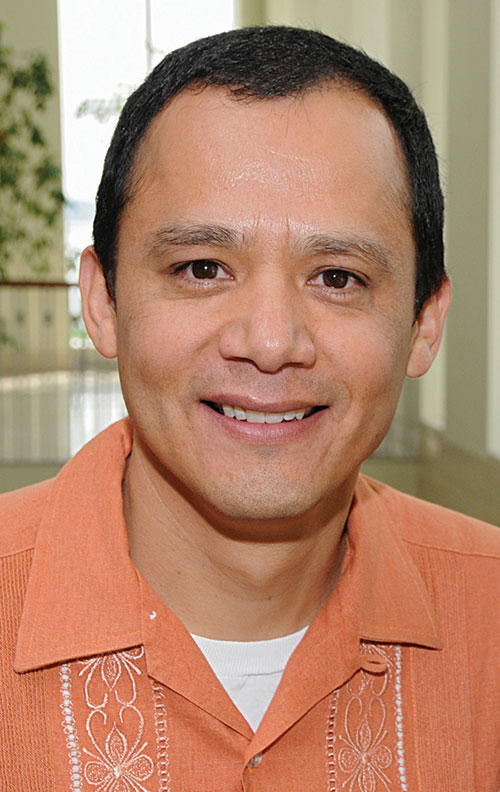
Adán Colón-Carmona, Ph.D. – Professor of Biology, University of Massachusetts, Boston
Adán Colón-Carmona is a Professor of Biology at University of Massachusetts (UMass), Boston. He is a Principal Investigator of the UMass Boston-Dana Farber/Harvard Cancer Center U54 Partnership and Co-Director of the UMass Boston Initiative for Maximizing Student Development, both initiatives with education activities geared towards diverse student populations. He has championed a series of programs and activities aimed at broadening participation in the sciences via professional societies, such as the Society for the Advancement of Chicanos/Hispanics and Native Americans in Science (SACNAS), where he serves on the Board of Directors. He has mentored in his laboratory 5 postdocs, 10 graduate students, 114 undergraduates, and 5 high school students, 70% of whom are from underrepresented groups. Approximately 80 percent of the undergraduates are planning, are engaged in, or have completed graduate studies. He has research projects related to plant growth control, microbiome development, stress physiology and tolerance, STEM education, and workforce development. Finally, Dr. Colón-Carmona is a product of an NIH “pipeline” diversity training program and strongly believes in the transformative change these types of programs have in the success of underrepresented individuals.
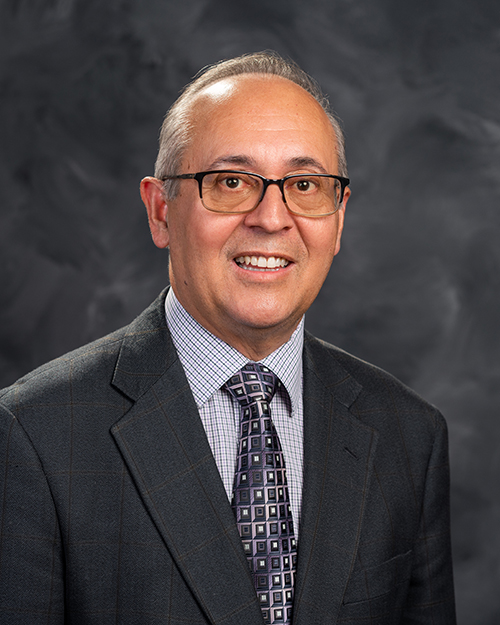
Carlos A. Casiano, Ph.D. – Professor, School of Medicine, and Associate Director, Center for Health Disparities and Molecular Medicine, Loma Linda University
Carlos A. Casiano is a Professor at Loma Linda University (LLU) School of Medicine. He completed his undergraduate education in biology at the University of Puerto Rico before receiving a Ph.D. in microbiology from the University of California-Davis. Prior to joining LLU in 1997, Dr. Casiano completed postdoctoral training at the Scripps Research Institute. Over the past 20 years, he has led a biomedical research program focused on the interplay between autoimmunity and cancer, with emphasis on prostate cancer-associated autoantibodies and autoantigens, mechanisms of chemoresistance, and health disparities. His serves as Associate Director of the LLU Center for Health Disparities and Molecular Medicine, and has mentored over 70 research trainees from diverse backgrounds and academic levels. He has over 100 publications in peer-reviewed biomedical research journals and books, and has been an invited speaker at numerous national and international conferences and universities. He serves as grant review panel member and chair for the National Institutes of Health and the Department of Defense. Dr. Casiano has been a member of the Program Steering Committee of the Ponce Health Sciences University-Moffitt Cancer Center since 2009, serving as Chair since 2018. He is an active member of the American Association for Cancer Research (AACR), in which he has served in various leadership capacities. Dr. Casiano has received several awards, including the AACR Minorities in Cancer Research Award, and at LLU, the Carroll Small Faculty Development Award, Hispanic Alumni Community Service Award, School of Medicine Distinguished Service Award, and School of Medicine Mentor of the Year Award.
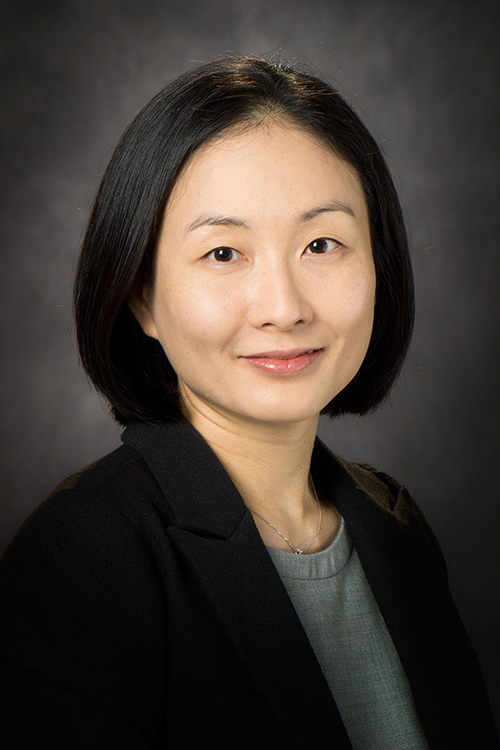
Dalnim Cho, Ph.D. – Instructor, Department of Health Disparities Research, MD Anderson Cancer Center
Dalnim Cho is an Instructor in the Department of Health Disparities Research at MD Anderson Cancer Center. Originally from South Korea, she began her career in the field of cancer survivorship and control as a clinical psychology intern at the National Cancer Center in Korea. She came to the United States for her doctoral degree and earned a Ph.D. in personality psychology focusing on health at the University of Connecticut. She completed postdoctoral training at two NCI-designated comprehensive cancer centers, City of Hope National Medical Center and The University of Texas MD Anderson Cancer Center. As a health psychologist and cancer disparities research scientist, her research focuses on improving health of underserved and understudied populations who are disproportionately affected by cancer. In particular, she is interested in incorporating multiple levels of influence, such as individual, family, provider, community, and physical environmental levels, for health and health behavioral change and, ultimately, developing, implementing, and disseminating multilevel interventions to reduce health disparities. Since her postdoctoral training at MD Anderson, Dr. Cho has been working on prostate cancer disparities research. In particular, with support from the NCI P20, she and her team culturally adapted evidence-based lifestyle interventions to meet the needs of racial/ethnic minority prostate cancer survivors and their spouses.
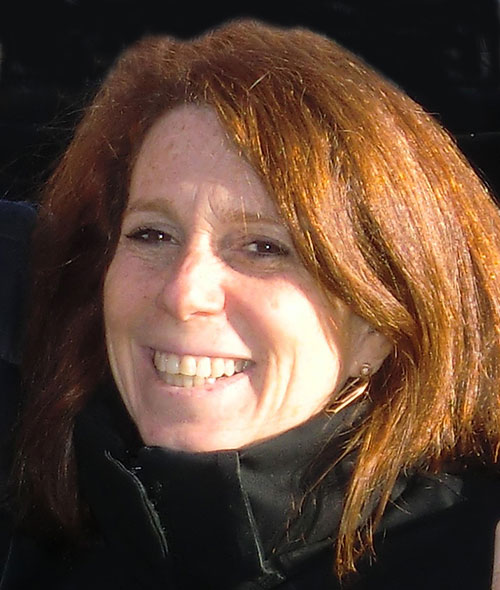
Francesca Gany, M.D., M.S. – Director, Center for Immigrant Health, New York University School of Medicine, and Chief, Memorial Sloan Kettering Immigrant Health and Cancer Disparities Center
Francesca Gany is founder and Director of the New York University (NYU) School of Medicine Center for Immigrant Health, Cancer Institute CORE Center (Cancer Outreach, Outcomes and Research for Equity), and Global Masters of Public Health, Health Promotion, Disease Prevention, and Human Migration concentration. She is now the founding Chief of the Memorial Sloan Kettering Immigrant Health and Cancer Disparities Center. Dr. Gany has served as the Principal Investigator on a number of pioneering immigrant health and health equity studies and programs in cancer and cardiovascular disease risk reduction, healthcare access, social determinants of health, cancer treatment adherence and quality of life, language access and cultural responsiveness, mHealth, and telehealth. She has led several studies in underrepresented communities that have followed thousands of participants. Her work has led to long-term policy and programmatic changes. She has a strong interest in cultural responsiveness in healthcare and has led various projects to enhance the provision of culturally responsive services. She also has established a medical interpreting research lab to build the knowledge base on linguistically responsive research and care. Dr. Gany worked with the community to develop the National Cancer Institute-funded U01, Cancer Awareness Network for Immigrant and Minority Populations (CANIMP). The NCI-funded Integrated Cancer Care Access Network (ICCAN), a CANIMP outgrowth, studies the impact of socioeconomic determinants on cancer treatment completion. Results have led to targeted interventions to improve treatment adherence, including the NCI-funded R01, Food to Overcome Outcomes Disparities (FOOD), a three-arm randomized controlled trial that is studying the impact of food availability interventions on food insecurity, quality of life, diet choices, and treatment adherence among English- and Spanish-speaking cancer patients. Dr. Gany is also a PI on the NCI-funded U54 City College of New York/Memorial Sloan Kettering Cancer Center Partnership for Cancer Research, Training, and Community Outreach, which implements translational research, outreach, and training to address cancer health disparities.
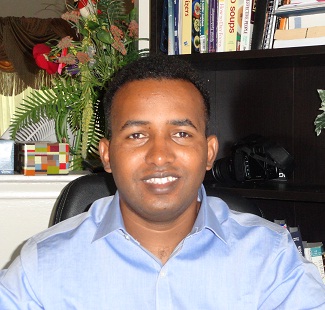
Samson Y. Gebreab, Ph.D., M.Sc. – Program Director, CRCHD
Samson Gebreab has been a Program Director in the Diversity Training Branch of NCI’s CRCHD since 2020. In this role, he contributes to the grant management of Feasibility Studies to Build Collaborative Partnerships in Cancer Research (P20), NCI Research Supplements to Promote Diversity in Health-Related Research, and NCI Supplements to Promote Reentry into Biomedical and Behavioral Research Careers, and conducts analyses on research activities and funding addressing cancer health disparities and minority health. Prior to joining CRCHD, Dr. Gebreab worked as a mathematical statistician at the Center for Tobacco Products, U.S. Food and Drug Administration (FDA). In this role, he served as FDA's lead for working groups on sampling design and data analysis and data delivery for the PATH Study and scientific reviewer for tobacco-related regulatory research projects. Prior to joining the FDA, he was a Staff Scientist at the National Human Genome Research Institute (NHGRI), NIH, and served as an Associate Investigator in Genomics, Environmental and Social Determinants of Cardiovascular Disease in African Americans. While at NHGRI, his research focused on health disparities, especially in African Americans, examining the impact of socioeconomic position across lifespan, psychosocial factors, and behavioral and neighborhood social and physical environments on health disparities and understanding the biological mechanisms contributing to racial/ethnic disparities in health outcomes. He was also actively involved in managing protocols and databases and mentoring summer students and postdoctoral fellows. Earlier in his career, Dr. Gebreab served as a biostatistician/epidemiologist for the Jackson Heart Study. He received his M.Sc. in geographic information science from Wageningen University, the Netherlands, and joint M.Sc. and Ph.D. degrees in statistics and spatial epidemiology from Utah State University. He completed a postdoctoral research fellowship at the University of Michigan School of Public Health, where he studied the influence of social determinants, such as socioeconomic status, neighborhood characteristics, and psychosocial factors, on cardiovascular outcomes.
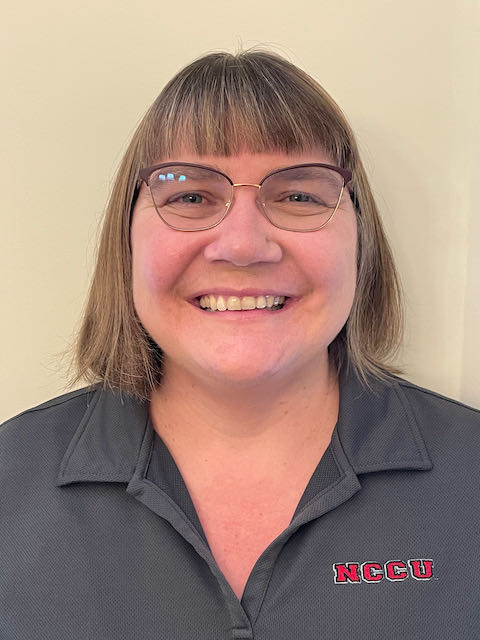
Wendy Heck Grillo, Ph.D. – Associate Professor, Biological and Biomedical Sciences Department, North Carolina Central University
Wendy Heck Grillo is a native of Kentucky, where she received her B.A. in biology from Bellarmine University and her Ph.D. in anatomical sciences and neurobiology from the University of Louisville Health Sciences Center. Her doctoral work focused on the development of the taste system in the brainstem. She was a postdoctoral fellow in the SPIRE (Seeding Postdoctoral Innovators in Research and Education) Program at the University of North Carolina-Chapel Hill (UNC-CH), which combines research training at UNC-CH and teaching undergraduate-level courses at a partner minority-serving institution (MSI). Dr. Grillo’s research focused on the role of microglia in pain perception in the spinal cord, and her teaching placement was what initially brought her to North Carolina Central University, where she is currently an Associate Professor in the Biological and Biomedical Sciences Department (BBSD). She has served on numerous committees at the departmental, college, and university levels, and is the Co-Transfer Student Coordinator and Lead Academic Advisor in BBSD. Her research focuses on undergraduate science education, including addressing student attitudes and motivation, developing and/or implementing course-based undergraduate research experiences (CUREs), as well as increasing the number of underrepresented minorities in research. Since 2015, Dr. Grillo has been serving as co-Director of the Basic Laboratory Science component of the PARTNERS Cancer Education Program for undergraduate students at both North Carolina Central University and the University of North Carolina-Chapel Hill.
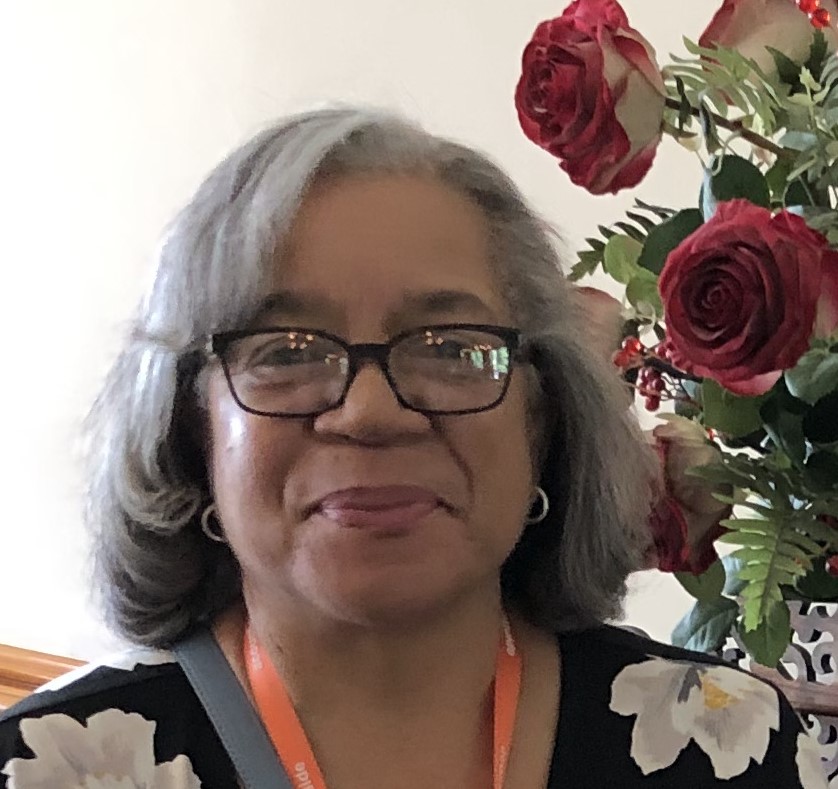
Karen Hubbard, Ph.D. – Professor, Department of Biology, The City College of New York
Karen Hubbard is a Professor in the Department of Biology at The City College of New York (CCNY), where she studies gene expression during cellular aging. Her research focuses on RNA metabolism during aging and the relationship between cell death (apoptosis) and aging. She currently is studying the role of chemotherapeutic agents in the initiation of cognitive dysfunction and the molecular mechanisms of ruthenium (RU)-based chemotherapeutics in the treatment of triple negative breast cancer. Dr. Hubbard has led several programs that facilitate the research capacity at minority-serving institutions. She was Principal Investigator/Project Director (PI/PD) for the MBRS/SCORE Program at CCNY from 2002 to 2011, and since 2008 has served as the CCNY PI of the CCNY-Memorial Sloan Kettering NCI U54 Partnership Program. More recently, she has received funding to co-lead a Stand Up to Cancer project that aims to reduce cancer health disparities by recruiting underserved minority patients to participate in clinical trials. In this project, she specifically leads the research education specific aim by developing a cancer health disparities curriculum for students and facilitating collaborative translational community-based research projects developed by junior faculty. Dr. Hubbard has a long-term commitment to training and mentoring underrepresented minorities across all academic levels. She has mentored numerous trainees since coming to CCNY and received an Outstanding Woman Scientist Award from the New York Chapter of the Association for Women in Science for her excellence in research and mentorship as well as a CCNY President’s Outstanding Faculty Service Division Science Award.
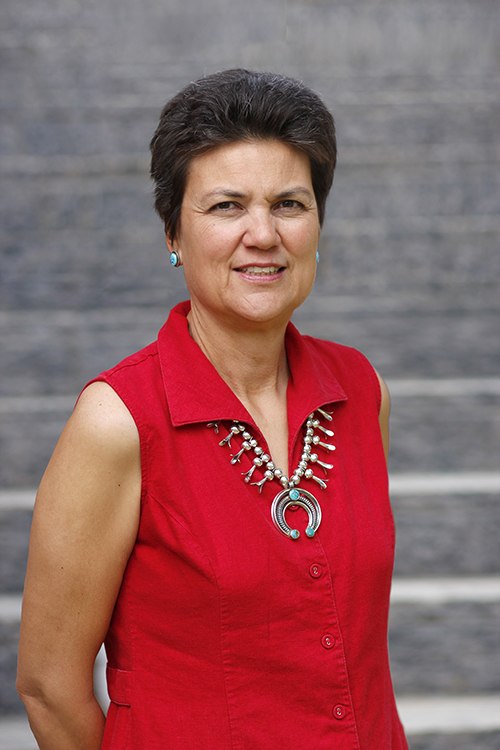
Jani Ingram, Ph.D. – Regents’ Professor of Chemistry and Biochemistry, Northern Arizona University
Jani C. Ingram is a Regents’ Professor of Chemistry and Biochemistry at Northern Arizona University, and her research focuses on investigating environmental contaminants with respect to their impact on health in at-risk populations. A critical aspect of her research is to foster collaborations with the Native American community and its leaders to build trust and gain insights into their health concerns. Dr. Ingram works with a diverse group of students in her research; this diversity represents students with different ethnic backgrounds, academic disciplines, and sexual orientations as well as where they are in their academic careers. She is a member of the Navajo Nation (born to the Náneesht’ ézhi clan) and has been involved in outreach activities for Native American students in K-12, undergraduate, and graduate research. Dr. Ingram is Principal Investigator of the Partnership for Native American Cancer Prevention and Director of the Bridges to Baccalaureate program. She was named the 2018 recipient of the American Chemical Society Award for Encouraging Disadvantaged Students into Careers in the Chemical Sciences.
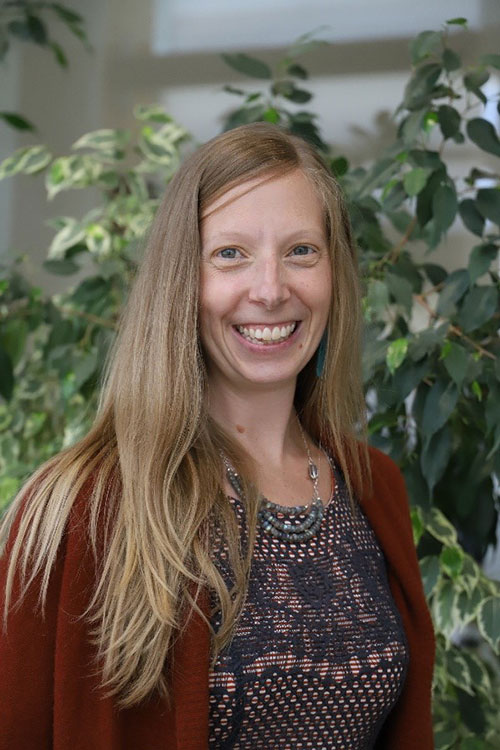
Kelly Laurila, M.A., – Research Scientist, Northern Arizona University
Kelly Laurila is a Research Scientist at Northern Arizona University (NAU). She has over 15 years of experience conducting health-oriented program evaluation and supporting data-driven decision making. She is responsible for the evaluation of NIH and National Science Foundation (NSF) programs worth over $35 million. Ms. Laurila currently serves as the lead evaluator for the Partnership for Native American Cancer Prevention (National Cancer Institute, Comprehensive Partnerships to Advance Cancer Health Equity U54); Southwest Health Equity Research Collaborative (National Institute on Minority Health and Health Disparities, Research Centers in Minority Institutions U54); Bridges to Baccalaureate program (National Institute of General Medical Sciences T34); and the Diné College Tribal Colleges and Universities Program (NSF TCUP). She has co-chaired several national working groups to inform metrics for evaluating the programmatic impact of NIH research infrastructure programs. Ms. Laurila has served as a mentor or preceptor for underrepresented minority (URM) trainees during their master’s internships. She has extensive experience working with programs focused on advancing health equity, building research capacity, and enhancing health research career pathways for URM individuals.
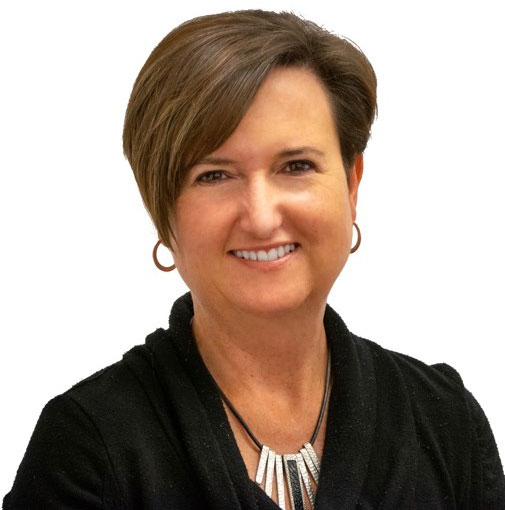
Helena (Lené) Loest, M.S. – Sr. Program Manager, New Mexico State University/Fred Hutchinson Cancer Research Center PACR
Lené Loest is Senior Program Manager for the U54 Partnership for the Advancement of Cancer Research (PACR) between New Mexico State University (NMSU) and the Fred Hutchinson Cancer Research Center (Fred Hutch). The PACR began as a U56 in 2001, and Ms. Loest joined the Partnership as Program Manager in 2002. The Partnership successfully competed for U54 funding in 2007 and has been funded from 2007 to 2023. Ms. Loest’s extensive experience in NIH grants management and historical knowledge of the Partnership has been crucial to the program’s continued success. Together with Marilyn Drennan, Program Manager at Fred Hutch, the team has begun working on the fourth competing renewal application. Ms. Loest’s main role is to manage all aspects of the partnership; set up, monitor, and close out budgets; track students and manage the extensive student database; and direct the day-to-day operations for the PACR program at NMSU. Before joining the PACR, Ms. Loest completed a Master of Science in Nutrition at Kansas State University. Prior to completing her M.S., she earned a B.Sc. in dietetics at the University of the Free State in the Free State province of South Africa and worked as a dietitian for 3 years in South Africa.
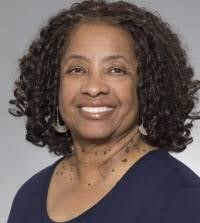
Anna Lucas-Wright, M.Ed. – Assistant Professor; Vice Chair, Department of Preventive and Social Medicine; and Co-Chair, Division of Community Engagement, Charles R. Drew University of Medicine and Science
Anna (Aziza) Lucas-Wright is Assistant Professor, Vice Chair of the Department of Preventive and Social Medicine, and Co-Chair of the Division of Community Engagement at Charles R. Drew University of Medicine and Science (CDU). Ms. Lucas-Wright received funding from the CDU/University of California, Los Angeles (UCLA) Partnership to Eliminate Cancer Health Disparities entitled “Present Your Body…,” a research program that aimed to acquire 750 completed surveys from 10 faith-based organizations (FBOs—churches, cathedrals, temples) regarding cancer within the African-American community. Ms. Lucas-Wright garnered 800 completed surveys and expanded the reach of this study to include 400 completed surveys in the Latinx faith community. In partnership with UCLA’s Dr. Annette Maxwell, Ms. Lucas-Wright recruited and co-led numerous subsequent studies building on the “Present Your Body…” project that provided participating FBOs with capacity-building services by way of technical assistance (training) in areas that included skills building in community health advisory strategies, peer coaching, documentation, evaluation, and peer instruction, to name a few. In partnership with and to assure fidelity to the community-partnered participatory research framework, Ms. Lucas-Wright provides content and participates in the preparation of manuscripts and reporting documents.
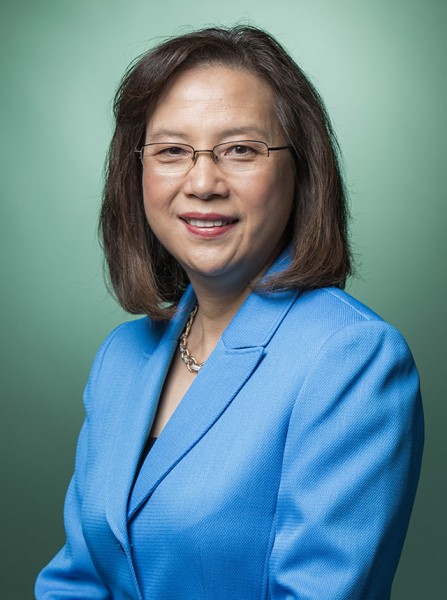
Grace X. Ma, Ph.D. – Associate Dean for Health Disparities; Founding Director, Center for Asian Health; and Laura H. Carnell Professor, Lewis Katz School of Medicine and Fox Chase Cancer Center, Temple University
Grace X. Ma is Associate Dean for Health Disparities, Founding Director of the Center for Asian Health, and Laura H. Carnell Professor at Lewis Katz School of Medicine and Fox Chase Cancer Center, Temple University. She is a nationally recognized population health scientist and pioneer in cancer health disparities research among racial/ethnic minority vulnerable populations. Dr. Ma has provided effective leadership in building robust research infrastructure and leading multidisciplinary teams across Temple schools/colleges and multiple institutions in conducting independent and collaborative cancer health disparities research and educating/training a pipeline of diverse investigators in population, translational, and clinical sciences. In 2000, Dr. Ma established the Center for Asian Health, which was among the nation’s first centers dedicated to reducing cancer health disparities in underserved Asian-Pacific Americans (APA). Over the past 20 years, Dr. Ma, as Principal Investigator, has directed four cycles of NCI/NIH-funded cancer health disparities research centers/networks across Pennsylvania, New Jersey, and the New York City region. Built on two decades of leadership, Dr. Ma and her research team established successful partnerships with over 400 community-based organizations and health centers to engage Asian-Pacific American, Black/African-American, and Hispanic/Latino populations in health disparity research and interventions. Dr. Ma conducted numerous cluster randomized trials that demonstrated evidence-based, culturally appropriate interventions to address multilevel determinants of health and improve health outcomes in cancer screening/early detection (e.g., hepatitis-related liver, lung, colorectal, breast, and cervical cancers), healthcare access, and quality of care in diverse underserved populations. Dr. Ma currently Co-Chairs the Asian American, Native Hawaiian, and Pacific Islander Interest Group for the NIH Community Engagement Alliance Against COVID-19 Disparities.
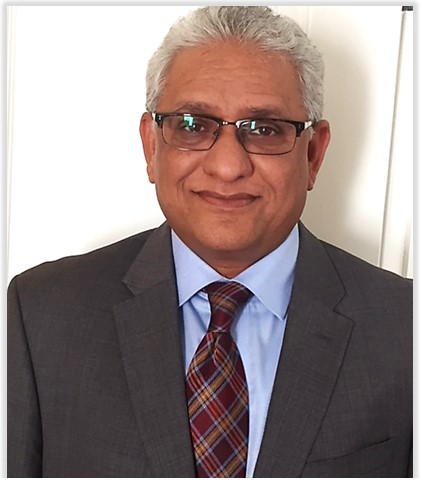
Upender Manne, Ph.D., M.S. – Professor of Pathology, Surgery, and Epidemiology; Director, Translational Anatomic Pathology Section; Co-Director, Biorepository Facility; and Senior Scientist, O’Neal Comprehensive Cancer Center and Minority Health Disparity Research Center, University of Alabama, Birmingham
Upender Manne is Professor of Pathology, Surgery and Epidemiology at the University of Alabama at Birmingham (UAB); Director of the Translational Anatomic Pathology Section; Co-Director of the Biorepository Facility; a Senior Scientist of the O’Neal Comprehensive Cancer Center; and a Senior Scientist of the Minority Health Disparity Research Center. For more than 25 years at UAB, Dr. Manne’s scientific career has been dedicated to translational cancer research, and he is a leader in the field of population-based cancer biomarkers. In 2009, he was part of the U.S. Presidents Cancer Panel to address how racial/ethnic admixtures affect the findings of molecular biomarker studies relating to cancer outcomes. Also in 2009, his mentoring skills were recognized by a Sir Charles Barkley Mentoring Excellence Award. In recognition of his contributions, he received, in 2010, an Innovator Award from the Alabama’s Governor’s Office and a Scientist Impacting Communities award from the Alabama/India Business Partnership Council. In 2018, he received the Albert F. LoBuglio Distinguished Faculty Award from the O’Neal Comprehensive Cancer Center. Dr. Manne is presently a Principal Investigator for a U54 grant supporting cancer research partnerships between UAB, Morehouse School of Medicine, and Tuskegee University. He currently is serving on several scientific advisory boards and as an advisor on numerous institutional and departmental committees of UAB and other institutions. He is also an editor and associate editor, is on the editorial boards of various cancer research journals, and serves as a member of various NIH oncology grant review committees.
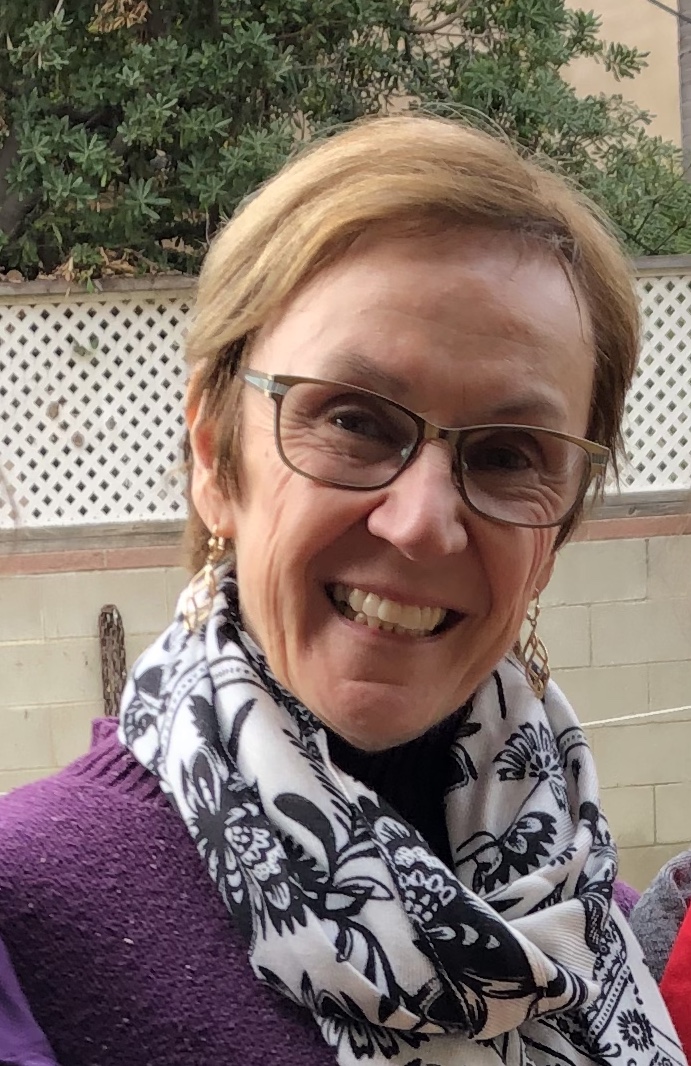
Annette Maxwell, Dr.PH. – Professor, University of California, Los Angeles Fielding School of Public Health
Annette Maxwell is Professor at the Fielding School of Public Health at the University of California, Los Angeles (UCLA) and conducts research at the Jonsson Comprehensive Cancer Center, Center for Cancer Prevention and Control Research and the UCLA Kaiser Permanente Center for Health Equity. She has developed a cancer research program that focuses on reducing cancer disparities. With funding from NIH, the American Cancer Society, and the Department of Defense, she has conducted randomized trials to test interventions to increase breast, cervical, and colorectal cancer screening and hepatitis B testing, and improve adherence to diagnostic follow-up procedures. She has partnered with many community-based organizations and churches to develop and test these interventions and to train peer navigators and community health advisors to recruit participants, deliver program components, and conduct assessments. Since 2009, Dr. Maxwell has served as the UCLA Co-Lead of the Outreach Core for the UCLA/Charles R. Drew University of Medicine and Science (CDU) Partnership to Eliminate Cancer Health Disparities and has conducted several studies in South Los Angeles in close collaboration with the CDU Co-Lead, Professor Aziza Lucas- Wright. Dr. Maxwell contributes a research perspective for all community engagement activities, including study design and assessments; directs data analysis; and coordinates manuscript preparation and reporting in consultation with all team members.
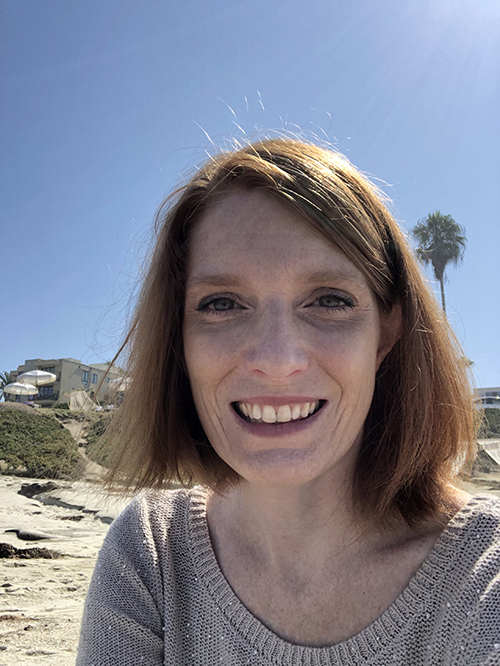
Corinne McDaniels-Davidson, Ph.D., M.P.H. – Director, San Diego State University Institute for Public Health, and Associate Director of Public Health Practice, San Diego State University School of Public Health
Corinne McDaniels-Davidson is Director of the San Diego State University (SDSU) Institute for Public Health (IPH) and Associate Director of Public Health Practice for the SDSU School of Public Health. She holds adjunct faculty and lecturer positions at the School of Public Health; represents SDSU as the Co-Leader for University of California, San Diego (UCSD) Health Moores Cancer Center Community Outreach and Engagement; and serves as Co-Investigator for the Outreach Core of the SDSU-UCSD Cancer Partnership, Academic-Community Liaison for the Altman Clinical and Translational Research Institute, and Evaluation Director for the Indian Health Council’s Native American Research Center on Health. At IPH, Dr. McDaniels-Davidson oversees a staff of research scientists, health writers, and public health professionals that collaborate on public health research and service projects with community-based and governmental agencies in and around California. She is Co-Principal Investigator (PI) of Communities Fighting COVID! Contact Tracing, a contract with the County of San Diego Health and Human Services Agency to provide culturally and linguistically concordant contact tracing services to four marginalized communities in the nation’s fifth largest county; Co-Investigator of Communities Fighting COVID!, a Rapid Acceleration of Diagnostics – Underserved Populations (RADx-UP) community testing grant; Co-Investigator of CommuniVax, a rapid ethnographic research project focused on vaccine uptake in San Diego County Latinos; co-PI of Communities Fighting COVID! @Home, a RADx-UP pilot research study examining feasibility and acceptability of at-home COVID tests in household members of middle school students; a multiple PI of Communities Fighting COVID! Returning Our Kids Back to School Safely, a RADx-UP initiative; and PI of Communities Fighting COVID! with Vaccines, a community health worker-led vaccine outreach program funded by the Health Resources and Services Administration.
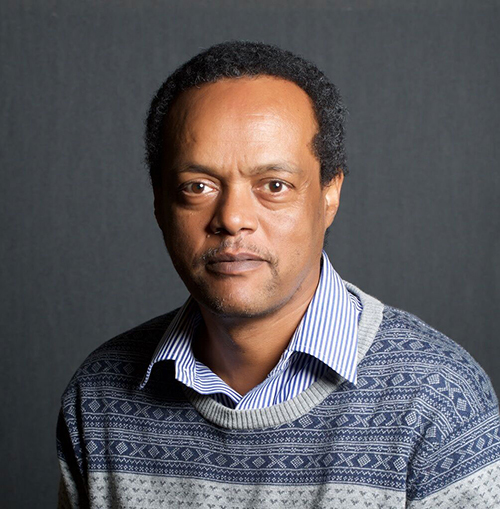
Bereket Mochona, Ph.D. – Associate Professor of Chemistry, Florida A&M University
Bereket Mochona is an Associate Professor of Chemistry at Florida A&M University (FAMU) Chemistry Department. He received his Ph.D. in medicinal chemistry from FAMU College of Pharmacy and Pharmaceutical Sciences in 2003. Dr. Mochona started his independent research career when he joined the faculty of the FAMU Department of Chemistry as Visiting Assistant Professor and later as Assistant Professor of Organic Chemistry. His research program primarily focuses on the design and synthesis of small molecules as new therapeutic leads that address significant unmet medical needs such as drugs used for the treatment of triple negative breast cancer (TNBC) and/or castration resistant prostate cancer (CRPC). His bioorganic medicinal chemistry research laboratory supported by the FAMU Research Center for Minority Investigators (RCMI) provided broad training spanning organic chemistry, medicinal chemistry, biochemistry, and pharmacology for over 25 undergraduate and graduate students. In line with the FAMU long-term goal of addressing health disparities and his professional goal to contribute to the elimination of cancer health disparities, Dr. Mochona has participated in several NIH-funded cancer research education programs for underrepresented minorities (URM) at FAMU, the largest minority-serving university in the State of Florida. Currently, he is serving as the FAMU Research Education Core (REC) Leader for the NCI U54 bi-coastal Florida-California Cancer Research Education & Engagement (CaRE2) Health Equity Center. As CaRE2-FAMU REC leader, Dr. Mochona coordinated and administered undergraduate, postbaccalaureate, graduate, postdoctoral, and early-stage investigator cancer research training and professional development. In addition, since 2012, Dr. Mochona has been serving as faculty advisor for FAMU URM students chosen to participate in a summer Cancer “Research Training Opportunities for Outstanding Leaders (ReTOOL)” program at UF. He also has successfully coordinated an NIH/NCI P20 pilot project in the Undergraduate Prostate Cancer Research Institute established under a Minority Cancer Research Training (MiCaRT) center at FAMU.
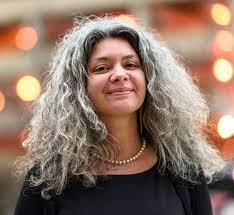
Yamile’ Molina, Ph.D., M.P.H., M.S. – Associate Professor, School of Public Health; Faculty Affiliate, Center for Research on Women and Gender; and Associate Director for Community Outreach and Engagement, University of Illinois Chicago
Yamilé Molina is an Associate Professor of Community Health Sciences in the School of Public Health, a Faculty Affiliate at the Center for Research on Women and Gender, and Associate Director for Community Outreach and Engagement at the University of Illinois Chicago (UIC). She has competitively secured K01 and R21 awards to address cancer health equity via systems science methods, best practices in community engagement, and mixed methods. Dr. Molina also is a UIC Co-Lead for the Planning & Evaluation Core within ChicagoCHEC, a PACHE partnership between Northwestern University, UIC, and Northeastern Illinois University. They have published more than 100 peer-reviewed articles. Dr. Molina’s success extends beyond research. Committed to supporting future thought leaders, she has mentored more than 50 undergraduate, postbaccalaureate, graduate, and medical students—most of whom identify as ethnic, sexual, and gender minorities.
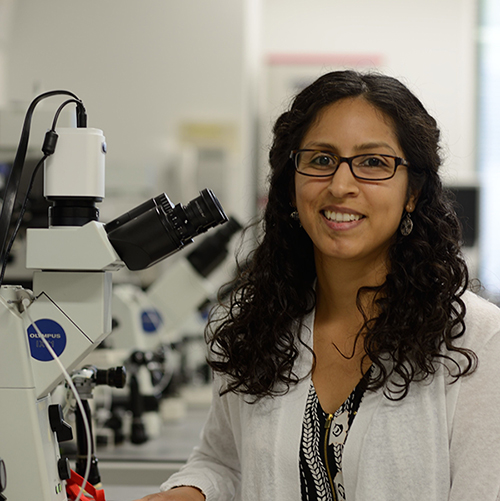
Diana Monsivais, Ph.D. – Assistant Professor, Department of Pathology and Immunology, Baylor College of Medicine
Diana Monsivais is Assistant Professor in the Department of Pathology and Immunology at Baylor College of Medicine in Houston, TX, where she studies the molecular basis of endometrial diseases, such as cancer, endometriosis, and infertility/pregnancy loss. Using genetically engineered mouse models and primary endometrial stromal cells, her work has shown that uterine TGFbeta signaling controls various key processes required for endometrial biology and can affect women’s health.
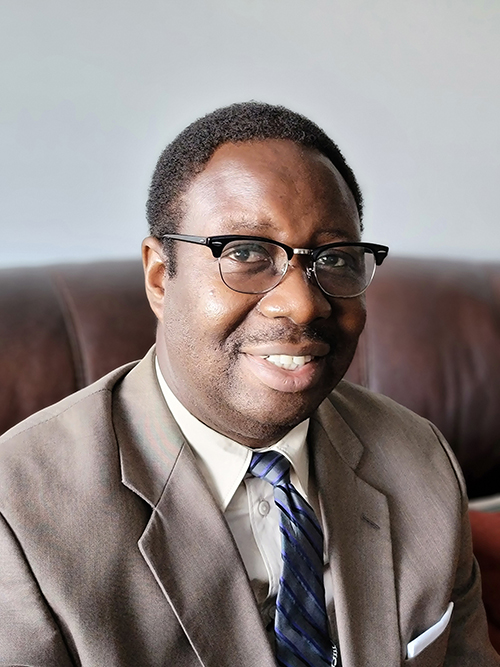
Olorunseun Ogunwobi, Ph.D., M.B.B.S., M.Sc., M.S. – Founding Director, Hunter College Center for Cancer Health Disparities Research, and Associate Professor of Biological Sciences, Hunter College, City University of New York
Olorunseun Ogunwobi obtained a medical degree from the University of Ibadan, Nigeria, a master's degree in biomedicine from the University of Hull, United Kingdom, a master's degree in clinical and translational science from the University of Florida, Gainesville, USA, and a Ph.D. in molecular medicine from the University of East Anglia, Norwich, United Kingdom. He is the founding Director of the Hunter College Center for Cancer Health Disparities Research, tenured Associate Professor of Biological Sciences at Hunter College of the City University of New York, and a member of faculty in the Biology and Biochemistry Ph.D. programs at the Graduate Center of the City University of New York. Dr. Ogunwobi is a translational cancer biologist whose work focuses on molecular mechanisms of progression of solid organ cancers with established racial disparities, such as prostate cancer. His laboratory has established novel circulating tumor cell models that are being used progressively to elucidate molecular mechanisms underlying the role of circulating tumor cells in cancer metastasis. A major focus of Dr. Ogunwobi’s laboratory are studies elucidating the role of noncoding RNAs derived from the PVT1 gene locus in the development and progression of solid organ cancers such as prostate cancer. His work has been funded by the National Institutes of Health, New York State, Carnegie Corporation of New York, and the National Science Foundation, among others. Dr. Ogunwobi is a Contact Principal Investigator of the Synergistic Partnership for Enhancing Equity in Cancer Health (SPEECH) funded by U54 grants (CA221704 and CA221705), Contact Principal Investigator of 3U54CA221704-03S1 and Co-Investigator on R01 grant CA239603 from the National Cancer Institute. An author of over 60 peer-reviewed journal articles and 2 book chapters, Dr. Ogunwobi has been issued four United States patents for biotechnology inventions with potential clinical applications in cancer, and he is a Co-Founder of NucleoBio, Inc., a City University of New York startup biotechnology company.
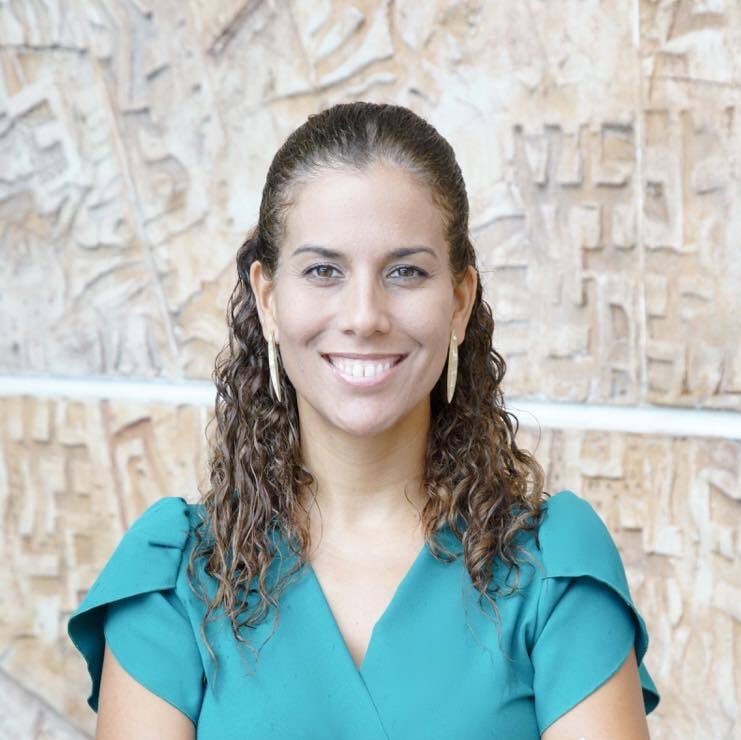
Ana Patricia Ortiz, Ph.D., M.P.H. – Professor, Division of Cancer Control and Population Sciences, University of Puerto Rico Comprehensive Cancer Center
Ana Patricia Ortiz is a Professor in the Division of Cancer Control and Population Sciences of the University of Puerto Rico Comprehensive Cancer Center and has 17 years of experience in cancer prevention and control research. She completed an M.P.H. in epidemiology with a focus on international health from the University of Michigan, Ann Arbor, and a Ph.D. in epidemiology from the same institution, as well as a postdoc in computational epidemiology of cancer with Case Western Reserve University. She also completed the NCI Cancer Prevention and Control Summer Course. Dr. Ortiz has 144 publications in peer-reviewed journals, and her research interests include human papillomavirus (HPV) infection and HPV-related malignancies, HIV, and women’s health. She is a researcher of the AIDS Malignancy Consortium (2UM1CA121947), where she is the Director of the Career Enhancement Program, and of the ANCHOR Study: Anal Cancer/ HSIL Outcomes Research Study (U01CA121947); Principal Investigator (PI) for a study of the associations of oral microbiota with oral HPV infection among Hispanics (1R21DE027226); and PI for a study elucidating the impact of hurricane María on gynecologic oncology care in Puerto Rico (1R21CA239457). Dr. Ortiz is the Program Director and multiple-PI of the CAPAC Program focused on providing mentored research experience in cancer prevention and control (R25CA240120), a researcher and multiple-PI of the University of Puerto Rico/University of Texas MD Anderson Cancer Center Partnership for Excellence in Cancer Research (2U54CA096297), and multiple PI of the CAMPO Clinical trials Consortium focused on the prevention of HPV-related cancers in HIV+ populations in Latin America and the Caribbean (1U54CA242646).
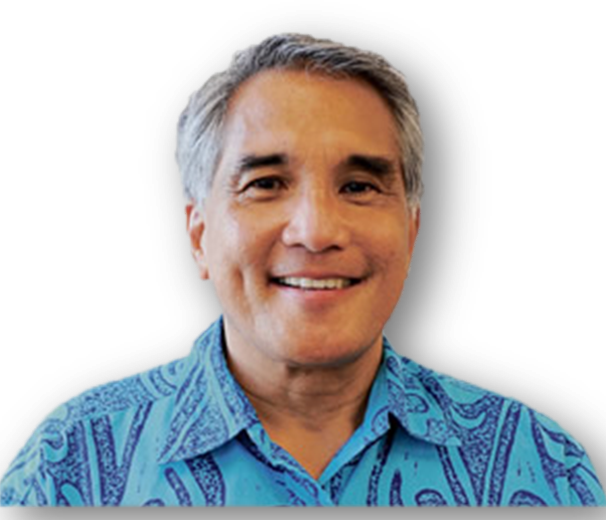
Neal A. Palafox, M.D., M.P.H. – Professor of Family Medicine and Community Health and B.H. and Alice C. Beams Endowed Professor in Cancer Research, University of Hawaii John A. Burns School of Medicine, and Adjunct Professor of Cancer Prevention and Control, University of Hawaii Cancer Center
Neal A. Palafox is Professor of Family Medicine and Community Health and the B.H. and Alice C. Beams Endowed Professor in Cancer Research at the John A. Burns School of Medicine at the University of Hawaii, and an Adjunct Professor of Cancer Prevention and Control at the University of Hawaii Cancer Center (UHCC). His focus has been on reducing health disparities in the populations of Hawaii and the U.S.-Affiliated Pacific Island (USAPI) jurisdictions of American Samoa, Guam, Commonwealth of the Northern Mariana Islands, Federated States of Micronesia, Republic of the Marshall Islands, and Republic of Palau. The work has involved health/healthcare capacity building through workforce development, systems-based development utilizing a community-based participatory approach, establishment of a Regional Pacific Population Based Cancer Registry, establishment of the Cancer Council of the Pacific Islands (CCPI), and development of a Pacific Regional Cancer Prevention and Control Network. Dr. Palafox is a multiple Principal Investigator for the National Cancer Institute Partnerships to Advance Cancer Health Equity U54 Partnership grant between UHCC and University of Guam, the National Institute of General Medical Sciences Institutional Development Award for Clinical and Translational Research for Hawaii, the Centers for Disease Control and Prevention (CDC) Racial & Ethnic Approaches to Community Health (REACH) grant for the USAPI, and the CDC PIACe Cervical Cancer Control grant in the USAPI. He has research and scholarship interests in health effects of U.S. nuclear testing in the Pacific, cultural competency, health equity, vitamin A deficiency in the Pacific, and ciguatera. He is also a founding member of the International Cancer Control Partnership.
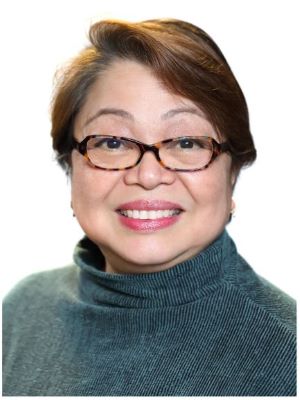
Maria Jamela (Jay) R. Revilleza, Ph.D. – Program Director, CRCHD
Maria Jamela (Jay) R. Revilleza joined the Integrated Networks Branch of NCI’s CRCHD as Program Director in February 2021. She is involved in projects related to cancer research and cancer disparities for integrated research, training, and outreach network programs. Prior to joining NCI, Dr. Revilleza was a Health Science Policy Analyst at the Tribal Health Research Office, Division of Program Coordination, Planning, and Strategic Initiatives, Office of the Director, and, earlier, a Scientific Program Analyst in the Division for Research Capacity Building, National Institute of General Medical Sciences. She initially joined NIH as a postdoc in the Molecular Biology Section of the Laboratory of Immunology, National Institute of Allergy and Infectious Diseases. A former academician, she was an Associate Professor of Biochemistry and Molecular Biology at the University of the Philippines (UP) and a professorial lecturer at American University. She received her Ph.D. in agricultural chemistry from UP, with a Fulbright dissertation and MCBN-UNESCO grants at the University of California, Berkeley. She received her master’s degree in food science (biochemistry minor) and an undergraduate degree in chemistry from UP, Los Baños.
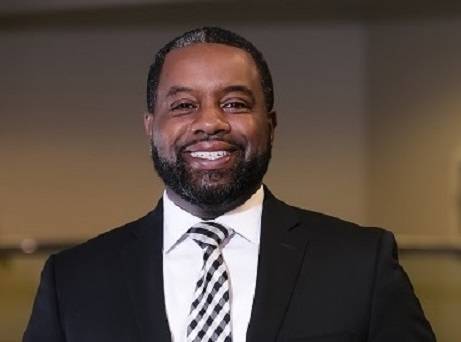
Brian Rivers, Ph.D., M.P.H. – Professor and Director, Cancer Health Equity Institute, Morehouse School of Medicine
Brian Rivers is a Professor and Director of the Cancer Health Equity Institute at Morehouse School of Medicine (MSM). He is nationally and internationally recognized as a leader in health disparities research and is a retired member of the National Institutes of Health (NIH) National Advisory Council on Minority Health and Health Disparities. He is an active member of the American Association for Cancer Research (AACR) and past Chairperson of the AACR Minorities in Cancer Research Council. Dr. Rivers is a behavioral scientist with a broad background in implementation science and public health, with specific training and expertise in methodologies commonly used to addressed health disparities. His research portfolio has endeavored to expand the application of population-based intervention science, within a multifactorial model, to address cancer health disparities and advance health equity in clinical and community-based settings using multilevel approaches inclusive of medical mobile apps and/or Community Health Workers and Patient Navigators. Dr. Rivers is a Multiple-Principal Investigator and Co-Director of the Outreach Core for the NCI-funded Partnership to Advance Cancer Health Equity involving Tuskegee University/Morehouse School of Medicine/University of Alabama, Birmingham O’Neil Comprehensive Cancer Center. He has led and is leading several large randomized controlled trials funded by the Patient-Centered Outcomes Research Institute and the National Institute on Minority Health and Health Disparities (R01) to evaluate and characterize the impact of multilevel digital health interventions targeting African-American men diagnosed with prostate cancer.
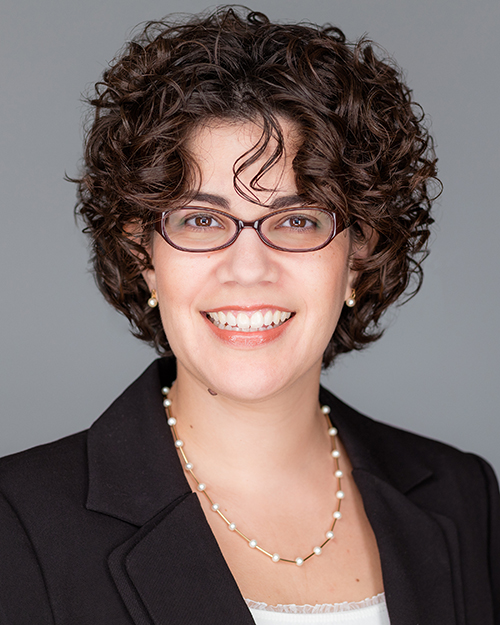
Sabrina M. Rodriguez, J.D., M.P.H. – Program Manager, Ponce Health Sciences University-Moffitt Cancer Center Partnership
Sabrina M. Rodriguez is the Program Manager at Moffitt Cancer Center for the Ponce Health Sciences University-Moffitt Cancer Center (PHSU-MCC) Partnership. She has been with the Partnership since 2010 and assists the Principal Investigators in the day-to-day oversight and management of the Partnership and provides support and guidance to Partnership members. Ms. Rodriguez earned a master’s degree in public health from the University of South Florida and a J.D. from Stetson University College of Law. She completed a Healthcare Administrative Residency at Moffitt and has worked in various administrative positions at Moffitt since 2001. As Program Manager for the Partnership at Moffitt, Ms. Rodriguez is responsible for directing and monitoring work efforts, coordinating team and work assignments based on program deadlines, identifying resource needs, analyzing fiscal operations, and assembling Partnership progress reports and timelines. Ms. Rodriguez serves a critical role as liaison for the Partnership and works directly and in collaboration with the PHSU Program Manager to facilitate Partnership communications at both institutions, coordinate and organize meetings at all levels between Partnership stakeholders (Co-Leaders, Internal Advisory Committee, Program Steering Committee, institutional leadership, Partnership investigators), and track and maintain Partnership accomplishments and outcomes.

Sandra L. San Miguel, M.S., Dr.PH(c). – Program Director, CRCHD
Sandra L. San Miguel has been a Program Director in the Integrated Networks Branch of NCI’s CRCHD since 2016. In this role, she contributes to the grants management of the P30 National Outreach Network and the Partnerships to Advance Cancer Health Equity (PACHE-U54) programs. Prior to joining the National Cancer Institute, she served in academia, holding faculty positions in the Department of Medicine-Epidemiology & Biostatistics at The University of Texas (UT) Health/Mays Cancer Center-M.D. Anderson Cancer Center and in the Department of Biology and International Studies at Trinity University. She also conducted cancer health disparities research at Baylor College of Medicine. Her expertise is in cancer prevention and control and developing, implementing, and evaluating evidence-based, culturally and linguistically sensitive behavioral interventions among racially/ethnically diverse populations within the U.S. and globally. Ms. San Miguel is a doctoral candidate in public health with an emphasis on global health epidemiology at the University of Illinois at Chicago. She received her M.S. in psychology from Our Lady of the Lake University in San Antonio and her B.A. in psychology from the University of the Incarnate Word.
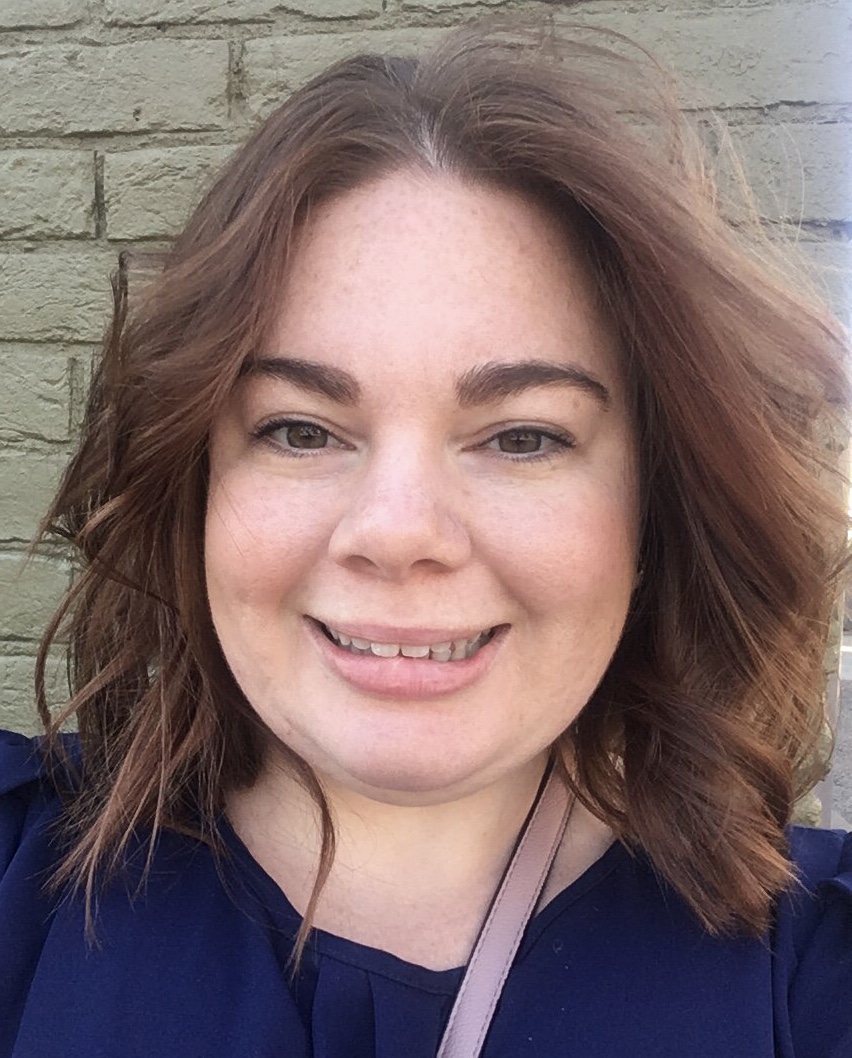
Jacquelyn Saval – Grants Management Specialist, NCI
Jacquelyn Saval is a Grants Management Specialist in the Office of Grants Administration at the National Cancer Institute. She manages business-related activities associated with NCI grant awards and is also responsible for pre- and post-award grant actions. She enjoys working with grantees and applicants to make the grants process as clear as possible.
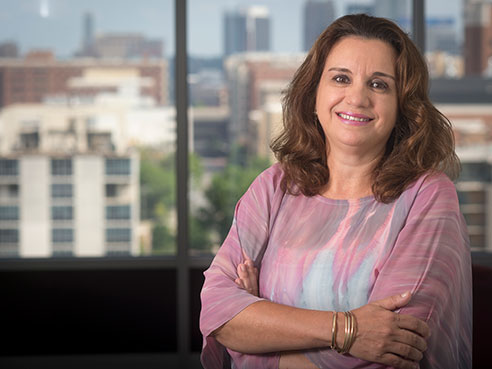
Isabel C. Scarinci, Ph.D., M.P.H. – Professor, Vice Chair for Global and Rural Health, and Senior Advisor for Globalization and Cancer, University of Alabama, Birmingham O’Neal Comprehensive Cancer Center
Isabel C. Scarinci is Professor and Vice Chair for Global and Rural Health in the Department of Obstetrics and Gynecology and Senior Advisor for Globalization and Cancer at the O’Neal Comprehensive Cancer Center, University of Alabama at Birmingham. She is the Multiple Principal Investigator for the Morehouse School of Medicine, Tuskegee University, O’Neal Comprehensive Cancer Center Partnership. She is a behavioral scientist with expertise and experience in the development, implementation, and evaluation of cancer prevention and control interventions in low-resource settings (including rural areas in the U.S. and low- and middle-income countries). She has also been the senior evaluator of large multicenter initiatives. With regard to capacity building, Dr. Scarinci leads a number of programs in health disparities targeting undergraduate and graduate students, postdoctoral fellows, and junior faculty in collaboration with other universities in the U.S. and abroad.
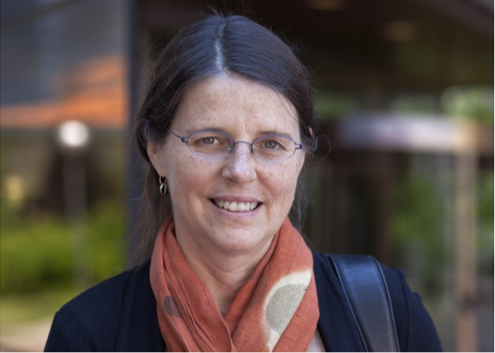
Victoria L. Seewaldt, M.D. – Ruth Ziegler Professor and Chair of Population Sciences and Associate Director, Board of Scientific Advisors, City of Hope Comprehensive Cancer Center, NIH/NCI Board of Scientific Advisors
Victoria L. Seewaldt is the Ruth Ziegler Professor and Chair of Population Sciences and Associate Director of the City of Hope Comprehensive Cancer Center and also serves on the NIH/NCI Board of Scientific Advisors. She is proud to be the daughter of a poor Slovak immigrant family that made good, as well as to be a wife and mother. Early in her career, she witnessed the devasting toll of triple-negative breast cancer in young African-American women. To this end, her career has focused on early detection and prevention of aggressive breast cancers. Dr. Seewaldt’s work includes identifying the molecular signaling pathways that promote the initiation and early progression of both triple-negative and poor-prognosis luminal B breast cancers. The unique feature of her program is that scientific discovery can be translated immediately to improve early detection and prevention. Dr. Seewaldt believes in mentoring the next generation of physicians and scholars, and ensuring that our next generation of leadership reflects the diversity of the United States. She is a mentor to many young men and women from diverse backgrounds and is very proud that her mentees have gone on to become professors, researchers, and leading physicians.
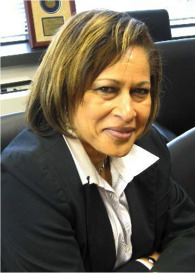
Sanya A. Springfield, Ph.D. – Director, CRCHD
Sanya A. Springfield is Director of the National Cancer Institute’s Center to Reduce Cancer Health Disparities, where she supports programs, initiatives, and activities to spawn cancer health disparities research, increase workforce diversity, and create networks for community outreach, education, and engagement. Within NCI, Dr. Springfield is a member of the Scientific Program Leadership (SPL), where she champions the need for continued investment for diversity training and education programs and to reduce cancer health disparities. Dr. Springfield previously was Chief of the NCI Diversity Training Branch, where she conceived, implemented, and oversaw the Continuing Umbrella of Research Experiences (CURE) program. Utilizing a unique, holistic, training pipeline approach, CURE seeks to increase the number of competitive cancer researchers from racial and ethnically diverse and other underserved populations. Dr. Springfield expanded the CURE program by launching a middle school program as part of a CURE early intervention strategy and an Intramural CURE (iCURE) program aimed at enhancing the diversity of the NCI intramural research workforce. Prior to this, she had expanded the diversity training landscape through the creation and implementation of the Partnerships to Advance Cancer Health Equity (PACHE). PACHE aims to improve the cancer research infrastructure at institutions serving underserved health disparity populations and underrepresented students (ISUPS) and enhance the ability of NCI-Designated Cancer Centers to address cancer health disparities in their communities.
Dr. Springfield serves on a variety of trans-NIH/NCI scientific and programmatic committees focused on increasing workforce diversity. For her vision and leadership in promoting diversity in biomedical research, she was honored with the NIH Director’s Award and the NCI Director’s Award. Dr. Springfield also serves as a member of the American Association for Cancer Research (AACR) Minorities in Cancer Research (MICR) and the Science Education and Career Development Committee, and played a vital role in establishing the annual AACR Conference on The Science of Cancer Health Disparities in Racial/Ethnic Minorities and the Medically Underserved.
Dr. Springfield received her Ph.D. in physiology and biophysics from Howard University and was the third African-American neuroscientist in the world. After completing her postdoctoral studies at the Robert Wood Johnson School of Medicine, she joined the faculty at City College of New York. Dr. Springfield left the academic ranks to serve as a Program Director at the National Science Foundation, and then entered NIH as a Grants Associate, after which she joined NCI.
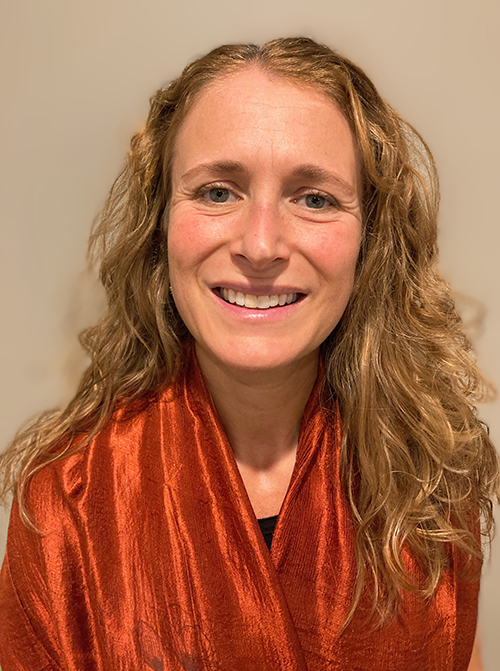
Sarah V. Suiter, Ph.D., M.S. – Associate Professor of Human and Organizational Development and Director, Community Development and Action M.Ed. Program, Peabody College, Vanderbilt University
Sarah V. Suiter is Associate Professor of Human and Organizational Development and Director of the Community Development and Action M.Ed. program at Peabody College of Vanderbilt University. Prior to joining the faculty at Vanderbilt, Dr. Suiter was a Senior Program Evaluator at Centerstone Research Institute. She received her Ph.D. from Vanderbilt University in community research and action, and completed a postdoctoral fellowship at the Center for Spirituality, Theology, and Health at Duke University Medical Center. Dr. Suiter’s research engages community-based responses to promoting human health and well-being. She has conducted community-based research with health and human development organizations domestically and internationally, including PRODEPINE in Ecuador; Casa de Galilea in Buenos Aires, Argentina; the Pujols Family Foundation in the Dominican Republic; the Raza Development Fund in Phoenix, AZ; and two federally funded System of Care sites in central Tennessee. With the help of her students, she has designed and supported the implementation of site-specific evaluations for 43 Nashville-based community organizations in the past 7 years. Dr. Suiter leads the Planning and Evaluation Core for the Meharry-Vanderbilt-Tennessee State University Cancer Partnership.
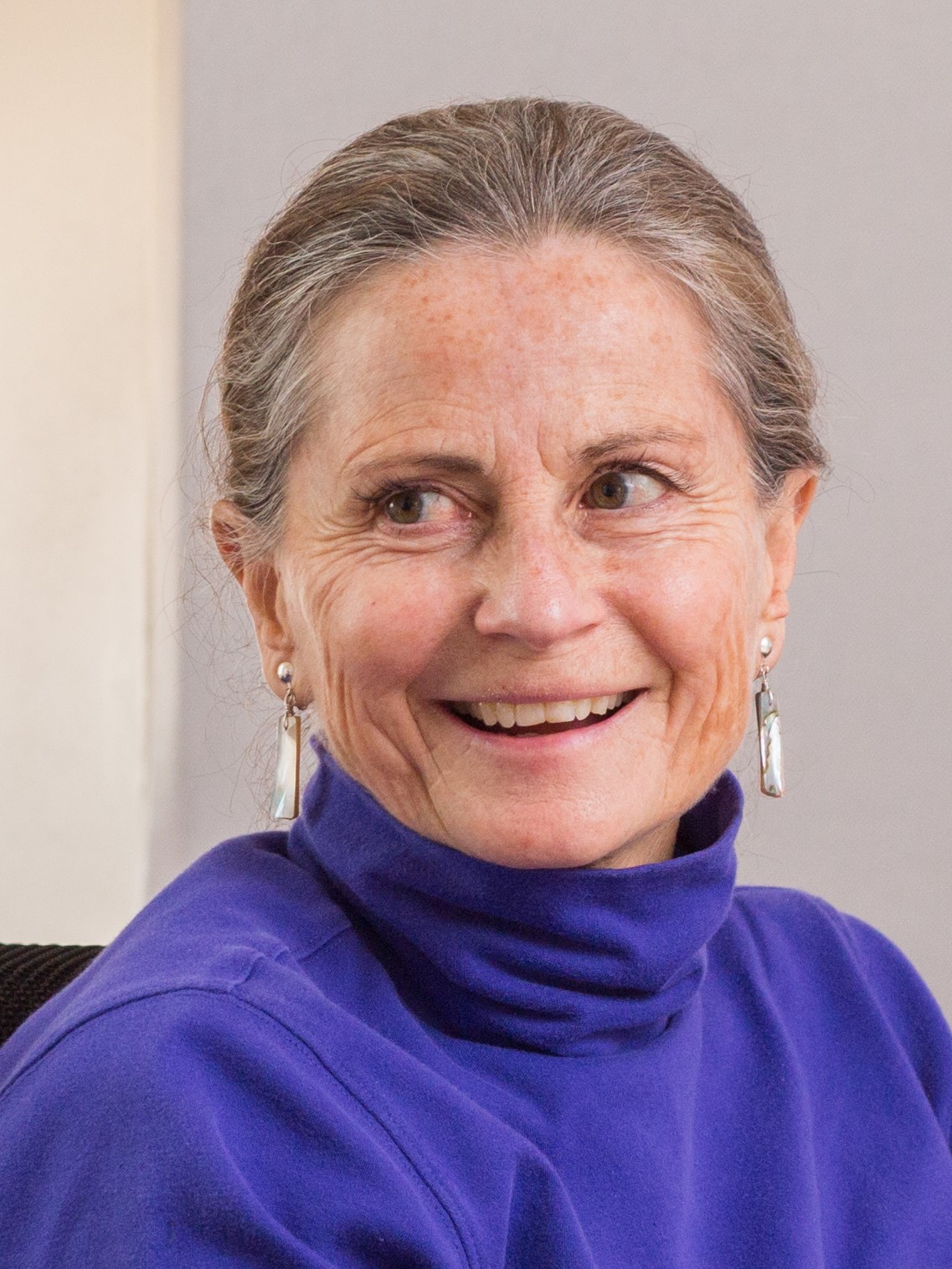
Nicolette Teufel-Shone, Ph.D. – Professor, Department of Health Sciences, and Associate Director, Center for Health Equity Research, Northern Arizona University
Nicolette Teufel-Shone is a Professor in the Department of Health Sciences and Associate Director of the Center for Health Equity Research at Northern Arizona University (NAU). For 35 years, she has worked with Native Nations to build local capacity and leverage social and cultural assets to improve community health. She and her community-based colleagues have maintained long-term tribe-university partnerships designed to promote shifts in community and institutional norms to support health and health behaviors. Dr. Teufel-Shone has contributed to the development of NAU’s new Master’s in Public Health program, leading the development of an Indigenous Health Track. In her capacity as a professor, she has mentored more than 50 Native American graduate students in public health research and service. She has received recognition for her mentorship, collaboration, and impact on Indigenous community health from the Native Research Network, Indian Health Service; the American Diabetes Association; and the National Indian Health Board. In 2015, she was granted a Fulbright Scholarship, during which she worked with University of Alberta and the Dene Yellowknives of Canada’s Northwest Territories. Dr. Teufel-Shone is the Outreach Core Co-Lead for the Partnership for Native American Cancer Prevention (PACHE U54CA143925). In this capacity, she has led the development of a dissemination workshop for research teams to learn strategies to share their knowledge and outcomes with communities, and a podcast series with Native Nation cancer programs and community-university research teams highlighting their work to support cancer prevention and early detection among Native Americans.
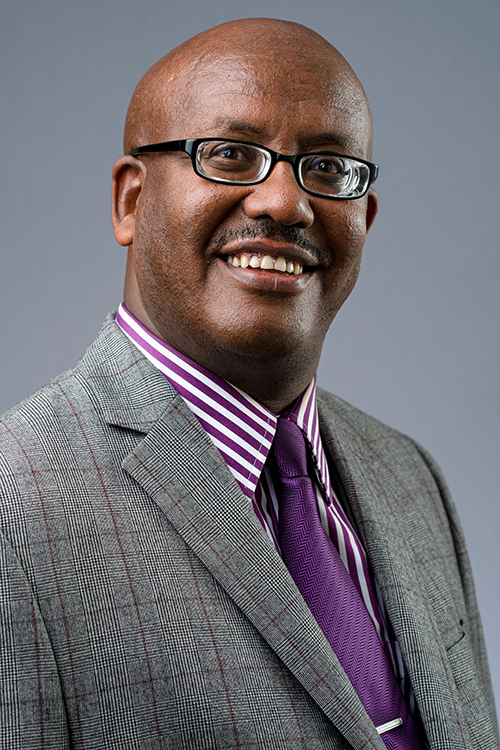
Mulualem E. Tilahun, D.V.M., Ph.D. – Program Director, CRCHD
Mulualem E. Tilahun has been a Program Director in the Diversity Training Branch of NCI’s CRCHD since August 2019. In this role, he contributes to the grants management of Career Development Mechanisms (K01 - NCI Mentored Research Scientist Development Award to Promote Diversity, K08 - NCI Mentored Clinical Scientist Research Career Development Award to Promote Diversity, and K22 - NCI Transition Career Development Award to Promote Diversity). In addition, he contributes to the grants management of the Comprehensive Partnerships to Advance Cancer Health Equity (CPACHE U54) programs.
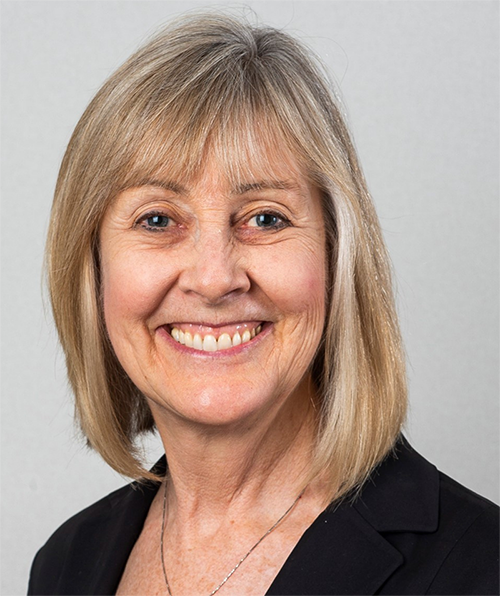
Mary Ann S. Van Duyn, Ph.D., M.P.H., R.D., L.D. – Associate Deputy Director for Integration, CRCHD
Mary Ann S. Van Duyn is Associate Deputy Director for Integration within the Center to Reduce Cancer Health Disparities at the National Cancer Institute. In this capacity, Dr. Van Duyn oversees the integration of CRCHD-supported disparities research, diversity training, and network-based efforts, and manages efforts to support the navigation of next-generation, underrepresented cancer researchers. She also leads CRCHD’s efforts in knowledge transfer and exchange through active dissemination of information, products, and evidence-based programs for cancer health disparities reduction within the public and scientific community. Dr. Van Duyn previously served as Chief of the Health Promotions Branch, NCI Office of Communications. Her work before joining NIH focused on the development, implementation, and assessment of cancer prevention programs for diverse and underserved populations, and the development of information delivery systems at community, national, and international levels. She received a B.S. from Cornell University, an M.P.H. from the Johns Hopkins University Bloomberg School of Public Health, and a Ph.D. in population and behavioral sciences from the University of Maryland, College Park. Her training also includes a clinical care delivery-focused fellowship from the Harvard-affiliated Brigham and Women’s Hospital.
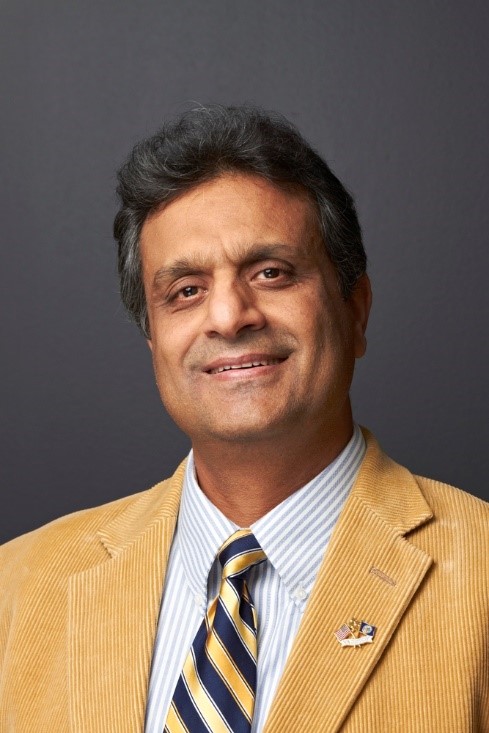
Anil Wali, Ph.D. – Program Director, CRCHD
Anil Wali has been a Program Director in the Integrated Networks Branch of NCI’s CRCHD since 2009. In this role, he contributes to the grants management of CRCHD’s Geographic Management of Cancer Health Disparities Program. He also provides technical and scientific expertise to the Comprehensive Partnerships to Advance Cancer Health Equity (CPACHE U54) program. Prior to joining NCI, Dr. Wali served as Associate Professor in the Departments of Surgery and Pathology at the NCI-designated Comprehensive Cancer Center Barbara Ann Karmanos Cancer Institute, Wayne State University, Detroit Michigan. While at Wayne State University, Dr. Wali served as Principal Investigator on a Veterans Administration Merit Review award-funded project on the Role of Ubiquitin-Proteasome Pathway in Mesothelioma Carcinogenesis. He conducted an NCI clinical trial on asbestos-exposed patient populations to determine their risk for developing lung cancer and mesothelioma using high-throughput genomics and proteomics technologies. Dr. Wali received his B.S. and M.S. degrees from the University of Kashmir in Srinagar, India. He earned his Ph.D. at the Postgraduate Institute in Chandigarh, India, and completed postdoctoral fellowships at the Institute for Environmental Medicine at the University of Pennsylvania; at the FELS Institute for Cancer Research at Temple University in Philadelphia, PA; and in the Department of Pathology at Thomas Jefferson University in Philadelphia, PA
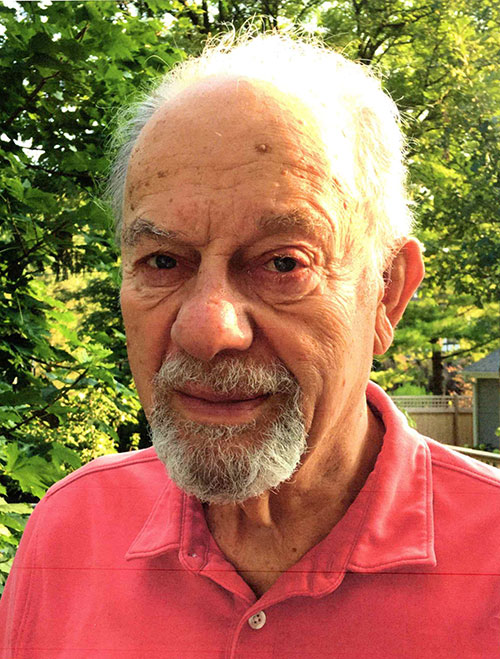
Richard B. Warnecke, Ph.D. – Professor Emeritus in Public Health, Sociology and Public Administration, University of Illinois at Chicago
Richard B. Warnecke is Professor Emeritus in Public Health, Sociology and Public Administration at the University of Illinois at Chicago (UIC) and a senior member of the UIC Cancer Center. Over the course of his career, one of his primary research interests has been understanding, developing, and evaluating strategies that address the underlying issues that affect medically underserved communities’ access to state-of-the-art cancer care. Beginning in 1979 and continuing through 2002, he led or co-led evaluations of several National Cancer Institute outreach programs focused on socioeconomics and ethnicity. Beginning in 2003 and ending in 2017, with funding from NCI, he directed a Center for Population Health and Health Disparities at UIC. The Center focused on a multilevel approach to understanding disparities in breast cancer mortality in Chicago, the final outcomes of which were published in January 2019. That paper identified a key element in the disparity in late-stage diagnosis between women of color and non-Hispanic white women in Chicago as lack of access to appropriate screening and diagnostic follow-up. Dr. Warnecke’s research team developed community partnerships focused on addressing these disparities. Dr. Warnecke currently co-chairs the internal advisory committee for Chicago CHEC, a collaboration of UIC, Northeastern Illinois University, and Northwestern University.

Karen Burns White, M.S. – Deputy Associate Director of Community Outreach and Engagement, Dana-Farber/Harvard Cancer Center
Karen Burns White is Dana-Farber/Harvard Cancer Center’s (DF/HCC) Deputy Associate Director of Community Outreach and Engagement and co-leads the implementation and oversight of an integrated structure that involves a multipronged approach including community engagement and education, inclusion of minorities in clinical trials, and research training for underrepresented early career investigators. We aim to ensure that the work and research of DF/HCC reduce cancer burden and inequity. Ms. Burns White actively participates and interfaces with a variety of community stakeholders to set and adjust agendas that focus on and support the immediate and long-term educational needs related to cancer, cancer prevention, and cancer health equity. Ms. Burns White also has had significant success in leveraging her knowledge of designing science education and research training programs to expose students to the field of cancer research. The Continuing Umbrella of Research Experiences (CURE) provides research training opportunities across the cancer center to help increase the participation of underrepresented students. These efforts focused on science education have created several successful high-profile research training opportunities for prebaccalaureate, undergraduate, pre- and postdoctoral, and faculty levels. Ms. Burns White’s role in student training leadership has brought about opportunities to develop additional programming that has further strengthened and sustained the cancer center’s training portfolio. This is most notable with the increase in NIH and foundation funding to support student training initiatives and the number of students who have benefited by their CURE experiences.

